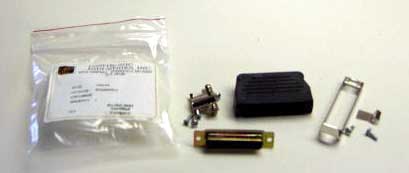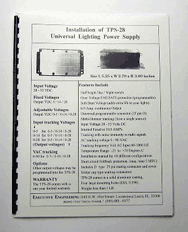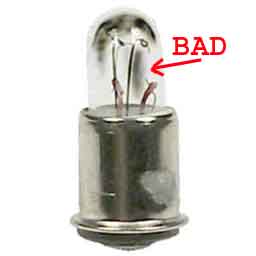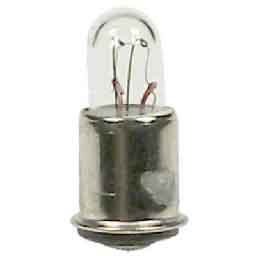|
Model Number: TPS-28C
Please use the
same pinout
|
TPS-28C Obsolete |
|||||
Avionics Lighting Power Supply |
||||||
Designed for All Lighting Needs |
||||||
VDC output: |
Fixed |
|
||||
| Adjustable | ||||||
| Tracking | ||||||
DC Volts Input: |
19-42 |
|||||
AC Volts Tracking |
0-115 |
Extend
your LAMP bulbs life by 5 Years |
||||
| DC Volts Tracking |
0 - 24 |
Modes Voltage |
output: / 0-24 Vdc / 0-14 Vdc / 0-5 Vdc / |
|||
current Amps out: |
0 - 6 |
Single Channel |
Short
circuit
protection |
Fused
Input |
||
Power Watts: |
30 - 144 |
Connector Programs TPS-28 |
||||
Configurations: |
18 |
|||||
| Weight LB: |
1 |
Efficiency: ~90% |
Size: L 5.25" x W 2.70" x H 2.00" |
|||
| Altitude: |
To 55,000 Feet |
|||||
| Temp./ MTBF: |
-25° to +70° C / 100,000 Run Time Hours |
|||||
| Night Vision: |
Consult factory for custom slew rates and other options. |
|||||
| Warranty: |
This unit come with a full 1 year grantee! |
|||||
| Shipping Export Control: |
ECCN: EAR99 "standard electronics, no limitations" Schedule B: 8504.40.7007 " using standard electronic components " Schedule C: U.S.A. |
|||||
| Compliance: |
Meets FAA
TSO-C71
Meets FAA -- STC NUM. SA2681SO T.C. A22CE
CE-A |
|||||
|
25 Pin Gold |
. |
.. |
Positronic Connector Kit comes with every TPS-28 |
. |
|
|
|
Instillation
Manual |
|
|||||
|
Ask about our Avionic Shop Dealer Discounts |
||||||
|
|
||||||
|
(
Requires Adobe
Acrobat Reader ) 3.0 + (PDF) Please use the TPS-28D for TPS-28C Installation Manual for TPS-28C |
|
PDF Files Size:
700K / PDF / 25
pages A-size
print click on link below Complete Installation Manual / Pinout / Schematics PDF Files Size: 60K / PDF / 1 page B-size print click on link below Mechanical Drawing for Mounting |
- Specifications
for system operation
- Input Voltage: 19 - 42 VDC Standard / 44 Volts Absolute
Max. (DO-157)
Fixed Voltages: Output VDC 5 / 14 / 28 *
Adjustable Voltages: Output VDC 0-5 / 0-14 / 0-28 * - Input tracking Voltages-(Output voltages)
- 0-5 Vdc for ( 0-5 / 0-14 / 0-28 ) *
- 0-14Vdc for ( 0-5 / 0-14 / 0-28 ) *
- 0-28 Vdc for ( 0-5 / 0-14 / 0-28 ) *
- VAC tracking input - (Output voltages)
- 0-115 Vac Input for DC Output ( 0-5 / 0-14 / 0-28 )
- Other Features ................................
- Half bright Day / Night switch ( switchable )
- Over Voltage FAILSAFE protection ( programmable )
- Soft-Start Voltage ( adds extra life to your lights )
- 6.0 Amp. Continuous Output ( max. standard )
- Universal programmable connector ( 25 pin D )
- Multi-Dimmer tracking ( from a single source )
- Input Voltage 19 - 42 Volts DC ( max. standard )
- Internal Fused at 12.0 AMP's ( max. standard )
- Tracking with noise immunity to radio signals
- AC tracking voltage 0 - 115 VAC
- Tracking frequency Volt AC Input 60-1000 HZ
- Temperature Range -25 to +70 Degrees C
- Installation manual for 18 different configurations
- Short circuit fold-back protection. ( max. time 3 MIN. )
- Includes D type 25 pin mating connector and cover.
- Solder cup type matting connectors
- TPS-28 comes in a solid aluminum casting,
- Four large mounting holes ( DIA. 0.190 ).
- Weighs less than 1 LB.
- Size ( including mounting ears ) High 3.00 x Length 5.25 x Width 2.70 inches.
- WARRANTY: The TPS-28 comes with a one year limited warrant
- Input Voltage: 19 - 42 VDC Standard / 44 Volts Absolute
Max. (DO-157)
-
Basic Operation:
-
The TPS-28 is a switching power supply. Because it's a switching supply it runs cooler and uses less power than normal lighting supplies. The unit is programmed, by a connector, to your correct voltage and options. The connector supplies both the input and output voltages to run the unit and your lighting. The tracking feature, one of several unique features, allows you to tie the output of an existing lighting system to the units tracking input feature. This allows the TPS-28 to track the other Lighting power supplies. The TPS-28 can be run in a fixed voltage operation, adjustable voltage operation, or tracking voltage operation. The unit has a selectable over-voltage protection option, insuring that your lighting will never be burnt out by over-voltage. Short circuit protection is also provided: if a wire should short for several seconds, the unit goes into a fold-back mode allowing the unit to shut down and then restart. If for some reason the short lasts for several minutes, the unit is designed to blow the fuse thereby abating the chance of a fire. The unit also has a PWM fail circuit: if for some reason the voltage controlling circuit fails the unit is designed to go into a shut off mode. The TPS-28 has a special feedback loop designed to run instrument lighting and does not have instantaneous voltage changes. This helps to eliminate those flickers and flashes when an engine changes it's output RPM.
- Tracking voltage, what it is and how it works.
- When you need to have the TPS-28 adjust its output voltage to follow another
supply voltage, you need to use the tracking input of the TPS-28. The tracking
input tells the TPS-28 how much voltage it should be putting out in proportion
to the other lighting power supply. This works for both fixed and variable
lighting supplies. You will need to select the proper range for the TPS-28 to
run your application. We have supplied all the standard configurations of most
lighting systems that you will need. The unit also has an AC tracking input of
0-90 Volts that allows 60 - 1000 Hz to be applied to the unit. This allows the
DC lighting to be adjusted to an AC lighting circuit.
- Dimmer switch, and what it does.
- The half bright dimmer switch is designed to work with any voltage or mode of
operation. When the switch is in the on position this will dim the lights that
are attached to the TPS-28 to half their brightness.
- Dimmer pot resistor, and what it is used for.
- When you are not using a fixed voltage output, or a tracking voltage output, you
will want to use a variable output for the TPS-28 lighting supply. The output of
the supply can be adjusted by a variable 1K pot from 0 volts to the maximum
voltage that you have selected for the TPS-28 supply. The 1k variable resistor
can be of any power value. The 5 volt reference is used to adjust the TPS-28s
supply feed back loop that controls the output voltage.
- Over voltage failsafe operation.
- There are three over voltage modes that are supplied with the TPS-28. Select the
over voltage level that coincides with your voltage. For maximum lighting
protection, combine this option with any of the others.
- What the TPS-28 will do for you:
- The Incandescent lighting controller is designed to provide long life for your lights, with flexibility for almost every lighting situation that you will run into. Almost any D.C. Lighting can be run with the TPS-28. The supply has a soft-start mode that protects the filaments from those quick voltage jumps by allowing a ramped-voltage rise when the unit is turned on, thereby extending the life of the bulbs. In addition, you can add a day/night dimming switch that allows you, in any brightness condition, to instantly dim the light(s) to half their brightness. This feature was added for those cloudy, moonlit nights when the lighting intensity fluctuates. It enhances your visibility to see in the outside world.
-
- Product Data Sheet:
- Technical notes for the TPS-28 (all specification are for maximum
power)
1. The unit has a 1.3 volt drop from input to output at or below the voltage of 28 VDC input. This is because
of its switching blocking design of the supply. However with a 30+ volts input, the output will never
go above 28 volts if the unit is set to a 28 volt output range. At 0 volts the unit output will be no more than 0.25 VDC.
2. The unit should always be well grounded to a flat metal surface to help eliminate heat and provide good regulation.
3. Keep transmitter / receiver wires away from the unit. This will help eliminate any interference the unit may generate.
4. If the unit is connected to a circuit breaker it should be of the 7 to 10 AMP type designed for use with 28 volts.
5. The TPS-28 can be used down to 12 volts but will never put out more voltage than it's input has.
(reduced current output )*
6. Non-standard output voltages can be obtained, you must consult the factory for correct wiring.
7. Tracking error will typically not exceed 6.0% with a stable input source.
8. Dimmer switch: output voltage will be typically 50% of what the output voltage was when applied.
9. Dimmer switch line current will not exceed 5 ma.
10. Dimmer switch line voltage will not exceed 6 volts.
11. Tracking input line current will not exceed 10 ma.
12. When using the unit as an adjustable output, you should always use a 1K pot.
You may use one Pot to adjust more than one TPS-28 at one time.
13. Pin 20, max.current is 10ma.
14. Pin's 1- 4, max.current 1.5 Amps each.
15. Pin's 11,12,24,25, Max. current 1.5 Amps each.
16. Pin 14 input current Max. less than 1ma.
17. Never connect the outputs of a TPS-28 to another TPS-28, the units DO NOT current share.
You may connect the output of one TPS-28 to the tracking input of another TPS-28.
18. When using more than one TPS-28 with a half bright dimming switch: always use isolation diodes or use a
separate switch contact for each circuit to ground.
19. The PWM's under voltage circuit will not let the unit operate until the input voltage reaches at least 10 VDC.
20. If the unit goes into over voltage it is designed to blow the fuse in the TPS-28.
21. Connector style is a 25pin "D" female / solder cup / slide-lock type for the connecting power cable.
22. There are four mount holes in the TPS-28's two flanges, holes are 0.190 DIA.
23. Never paint the TPS-28 housing. This will cause the heat transfer to be lessened.
24. The TPS-28 can be used to run LED's, Wheat grain bulbs, Quartz lighting, Tungsten filament lighting.
25. Maximum output current is 6.0 AMPs continuous at any output voltage selected. Surge currents 8 AMPs
26. The input voltage to the TPS-28 has surge protection that goes into operation above 45.0 volts.
- Technical notes for the TPS-28 (all specification are for maximum
power)
|
LAMP & BULB LIFE What kills most of your bulbs or lamps in an aircraft? Your startup of the electronics. When you flip the power switch you get a huge inrush of current into the lamps or bulbs until the electron current heats up the filament. during that heat up time the filament wiggles and wobbles causing fractures in the filament to start to break. Then months later you lamp is out and your are back to the avionics shop for a bulb change and a costly repair. The TPS-28 eliminates all that cost. with our soft start circuit, The TPS-28 limits that inrush electron current. Saving you hundreds of dollars and hours of repair time at the avionics shop. |
|
|
Tired
of having this! the other guys lighting controller Lamps are ~ 40ma = 0.040 amps @ 12 or 28V Lamp Types 328 / 327 |
Then
have this! TPS-28 lighting controller Lamps are ~ 40ma = 0.040 amps @ 12 or 28V Lamp Types 328 / 327 |
|
Cost Saving - operation of an Aircraft |
|
|
Here is a typical scenario. You have 28 V and you want to get to 5 Volts @ 6 Amps, so you think "I will use some power resistors or a linear regulator because they are cheap"!!! You just cost the customer 200 watts of needless power and heat every hour he runs the aircraft. On top of that you may be burning up your aircraft generator. |
What does it cost in fuel? Well if you do the math, 200 watts comes out to be about 1/4 of a horse power to the engine. It does not sound like much but add that fuel cost in and after hours of flying its like adding another person to the aircraft. You have burned up thousands of dollars of fuel. In the long run, those cheap power resistors ended up costing your customer lots of money. |
|
Here is the answer |
|
| What is the difference between a linear regulator and resistors verses the TPS-28? Well, everything in the world. The TPS-28 is a switching power supply that only takes a small amount of power to get to the 5 Volts or to whatever voltage you need. Switching regulators use charging circuits and do not dissipate large amounts of heat to do the power conversion. | Is there any other way of doing low cost power conversion? NO, not unless you can change physics. The TPS-28 has an efficiency of about 90%. That's 80% better than power resistors or a linear regulator. The real answer to the question is this: In a very short time the TPS-28 more than pays for itself just in lower fuel costs.. |
Homepage: Http://\www.Exec-Eng.com/




